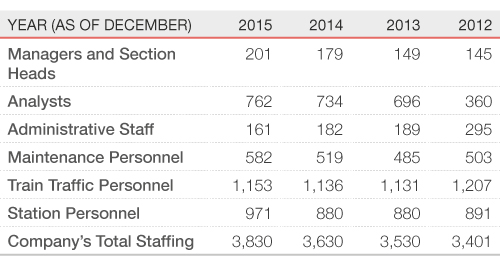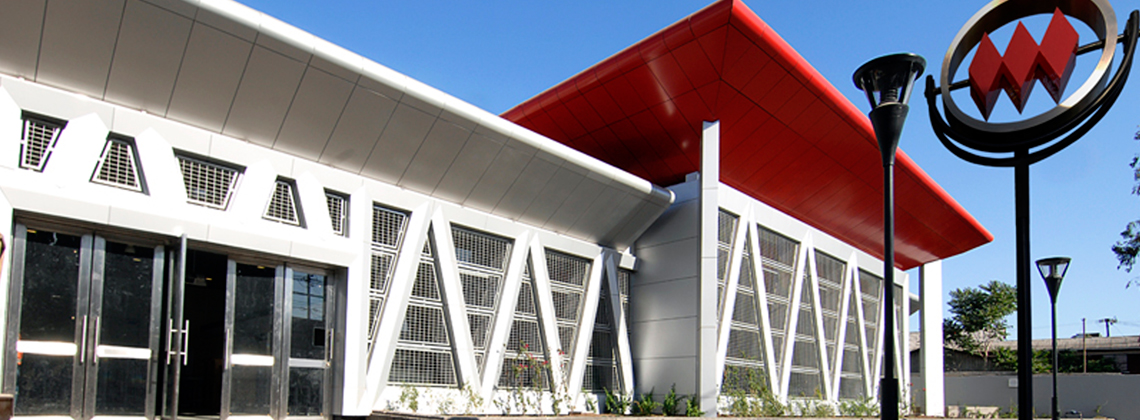In 2015, the HR Department’s Quality of Life Area continued implementing the Preventive Health Program with a view to fostering self-care and healthy lifestyles. Some of the activities carried out under this program were a vaccination campaign, and a program for at-risk individuals that provides medical and nutritional counseling to workers with cardiovascular risk factors. Also under this program, the Welfare Fund launched the “Más Salud” campaign that entailed cost-free preventive medical and dental care for workers and their families. It also involved an HPV immunization campaign for workers’ children, in which Metro subsidized 50% of the vaccine’s cost and offered various forms of payment. A total of 1,770 individuals benefited from the “Más Salud” campaign.
In addition to the above, the company’s current Drug and Alcohol Use Policy has an Employee Assistance Program aimed at drug and alcohol use prevention and control. In 2015, the company held a training session on this matter for 52 new managerial and supervisory hires
Metro also has a Welfare Fund, which is a company benefit available to all workers with open-ended contracts. In order to access these benefits workers must pay a monthly fee (and the company matches workers’ contribution by five to one). Membership benefits include reimbursement for medical and dental services, medical and low-interest loans, and a variety of different discounts at dental care facilities, drug stores, eye-care stores, clinics and hospitals. Wellness Fund membership in 2015 amounted to 3,594 and 73,427 services were delivered under the program for a total of $1,642,458,049.
The company also promoted it Grants Program aimed at providing economic assistance for social, cultural, sporting and recreational activities spearheaded by workers. In addition to the above, for the first time ever, in 2015 the Welfare Fund publicly announced its results to the entire organization at an event attended by some 320 workers, as an effort to foster closer ties with workers and make the funds’ operations publicly known.
On a different note and with a view to encouraging the participation of workers and their family members in company events and a healthy lifestyle through recreational, sports and educational activities, Metro founded the Recreation and Sports Program. The most outstanding activities sponsored through the program in 2015 were: The Quality of Life Soccer Cup with a women’s, men’s and all players’ category in which 595 workers took part; a Bowling Tournament with a turnout of 177 workers; and the Fitness Program with an average monthly attendance of 156 individuals and 1,279 hours yearly.
The most noteworthy recreational activities held in 2015 for our workers and their families were as follows: Winter and Summer Vacation program for workers’ children serving 199 children in 2015; the Child’s Day Festivities with a turnout of 675 individuals; the My Family Visits the Metro Day for which 114 individuals came out; the Christmas Party with a grand total of 1,477 guests including workers and their families; and a cultural program with plays for a total of 380 theatre goers.
Furthermore, in 2015 the company sponsored the 3nd Annual Children’s Drawing Contest entitled “Forty Years since the First Metro Ride,” in which 62 children participated and the 12 winning drawings were used in the 2016 Metro Calendar given out as a gift to each worker.
Another initiative launched by the Quality of Life area is Más Cerca de Ti (Closer to you), a program aimed at providing social services in the field to workers facing difficult situations affecting their and their families’ quality of life, marking a presence in important moments. In addition to the above, there were several talks given on program benefits and meetings with supervisors. In 2015, 598 workers received assistance under this program and 30 talks were given.
A company-wide celebration was held with all pregnant employees on the first anniversary of implementation of the “Maternity Benefits Policy” with a view to further promoting policy benefits.
In 2015, the company took part in a collective bargaining process with the Union of Professionals and Technicians. While strictly adhering to applicable legal mandates, the parties were able to reach an agreement that, although within the confines of the liability and sustainability requirements set by the company, still benefits workers.
On August 18th, 2015, the board of Metro’s Union of Professionals and Technicians signed a new, three-year collective bargaining agreement applicable to union members effective September 1st, 2015. This new agreement provides new and improved benefits for workers, while also reinforcing certain qualitative aspects aimed at fostering workers’ development. The agreement was made possible by both parties’ commitment to dialogue.
Lastly, as of December 2015, 92% of Metro employees are unionized. The labor organizations represented in the company constitute an important outlet for worker involvement, and the company works closely with workers on a handful of joint initiatives aimed a reinforcing Metro’s productivity and workers’ wellbeing.

